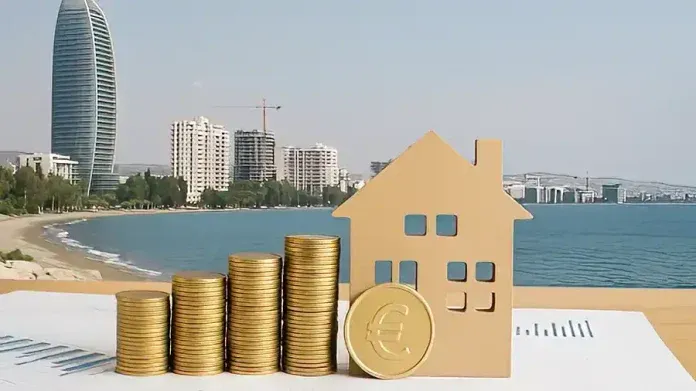A mortgage (in the context of buying a home in Europe) is a home loan that helps people purchase property by spreading payments over many years. Like it or not, for millions of Europeans, it’s the only way to own a home. What do the numbers say? Eurostat reports that around 60-70% of real estate transactions are made using a mortgage. But now, European mortgage rates are rising fast, making homeownership much more expensive.
What does this mean for buyers? Monthly payments increase, fewer people can afford to buy, and the real estate market shifts. This issue is affecting almost all European countries. Let’s dive into the details.
Which European Countries Are Raising Mortgage Rates?

Mortgage rates are climbing all over Europe, but not every country is affected similarly. Let’s take a closer look at where rates are rising the most:
- Germany: The European Central Bank (ECB) raised the key interest rate to 4.5%, pushing mortgage rates in Germany up to 6% annually. That means if you paid €1,200 monthly for a mortgage in Berlin, you’re now looking at €1,600.
- France: Mortgage rates are around 4.3% now but could go higher. A €300,000 home that used to require a €1,100 monthly payment now costs around €1,450.
- Spain: We record an up to 5% increase in new Spanish mortgage rates, which results in fewer new loans. For example, if you take a €250,000 mortgage, under the new rates, you would pay €1,350, whereas before, this amount would not have exceeded €950.
- Italy: The rates were 2.5% in 2021 and 5% in 2025. A borrower who was paying €850 monthly is now paying €1,300.
- Netherlands: The average mortgage rate will be 4.7% in 2025. If you take out a €400,000 loan, you will pay roughly €500-€600 more per month.
- Portugal: Mortgage rates climbed to 5.2%, so buyers held off on purchases. A €200,000 mortgage that used to cost €900/month now costs €1,200.
- Cyprus: Mortgage rates jumped to 5.5%, hitting foreign buyers especially hard. A €150,000 loan that once required €650 per month now costs €1,000.
- Sweden: With mortgage rates at 4.9%, fewer people are buying homes, cooling the real estate market.
- Greece: Rates are now 5.3%, making property less accessible to locals and international buyers.
If you’re looking to buy property in Cyprus but want more flexibility, check out apartments for rent in Nicosia.

Why Are Rates Increasing?
The biggest reason? Inflation. Central banks step in when prices for everyday things (like food, gas, and electricity) go up too fast. Their solution? Raising interest rates makes borrowing money more expensive. This helps slow down spending and cool off the economy.
But that’s not all. Higher energy costs (thanks to global supply issues) and economic uncertainty also play a huge role. Banks worry about risk, so they increase mortgage rates to protect themselves. The result? Home loans cost more, monthly payments go up, and fewer people can afford to buy property.
How Does This Affect the Real Estate Market?
Rising mortgage rates don’t just impact buyers — they change the whole real estate market:
- Fewer people are buying: With higher loan costs, fewer buyers can afford homes.
- Housing prices might drop: Some countries already see price declines, with experts predicting a 5-10% drop by late 2025.
- More people are renting: Since buying is getting harder, renting property is becoming the go-to option.

For example, let’s compare the costs. A few years ago, if you took out a mortgage for a €250,000 home, your monthly payment could have been around €950. Now, with increased interest rates, that same mortgage might cost €1,350/month — that’s an extra €400 every month! Meanwhile, renting a similar property might cost around €1,200/month, making it a more attractive option in the short term for those who can’t afford the rising mortgage payments.
Future Outlook
So, what’s next? Most experts believe mortgage rates will stay high until at least the end of 2025. However, there’s hope:
- Some countries, like France and Belgium, may see small rate cuts by late 2025.
- More unstable economies (Spain, Italy, Cyprus) could keep rates high longer.
- Central banks will adjust rates depending on inflation trends.
Investors with a long-term vision might consider land plots in Cyprus, especially in growing yet affordable regions.
What to Do If You're Planning to Buy a Home?

Thinking about buying a home despite the high rates? In the long run, it’s definitely a smart decision. But don’t underestimate the preparation — one way or another, you can make the deal even better:
- Compare bank rates — Some banks offer better deals than others, even in the same country.
- Consider renting — Renting is currently cheaper than paying off a mortgage in some places.
- Wait for possible rate cuts — Experts predict some reductions in 2026.
- Look into fixed-rate mortgages — Locking in a stable 5% rate now may be better than a fluctuating variable rate.
- Plan your budget carefully — A loan that used to cost €1,000 per month might now cost €1,400.
- Talk to financial and real estate experts — Mortgage brokers and advisors can help you find the best options.
Where Are Mortgage Rates the Highest and the Lowest in Europe?

Buying a home in Europe right now? Get ready for a rollercoaster! Some countries have crazy high mortgage rates, while others are more budget-friendly.
The UK is one of the toughest spots, with rates around 7.3% — ouch! Meanwhile, Sweden is looking pretty good, with rates closer to 3.2%. Across the Eurozone, things are starting to calm down as the ECB lowers its key rate to about 2.5%, but that doesn’t mean mortgages are cheap everywhere. In places like Germany and the Netherlands, rates are still way higher than just a few years ago.
If you’re considering buying, keep an eye on these numbers — they could make a huge difference in your monthly payment!
How Are Homeowners Coping with Rising Rates?

For those already paying off mortgages, rising rates are a financial challenge. Many homeowners are adjusting by:
- Refinancing their loans — Switching to a fixed rate to avoid further increases.
- Renting out extra space — Generating income to help cover higher payments.
- Downsizing — Selling larger homes to buy smaller, more affordable ones.
- Taking advantage of government support — Some countries, like France and the Netherlands, offer subsidies and temporary tax benefits.
Final Thoughts
Rising mortgage rates are making home buying in Europe more expensive, but that’s also leading to changes in the market. While buyers face higher costs, property prices may start to drop (can’t wait), creating future opportunities. If you’re considering buying, stay informed, compare options, and plan strategically!






